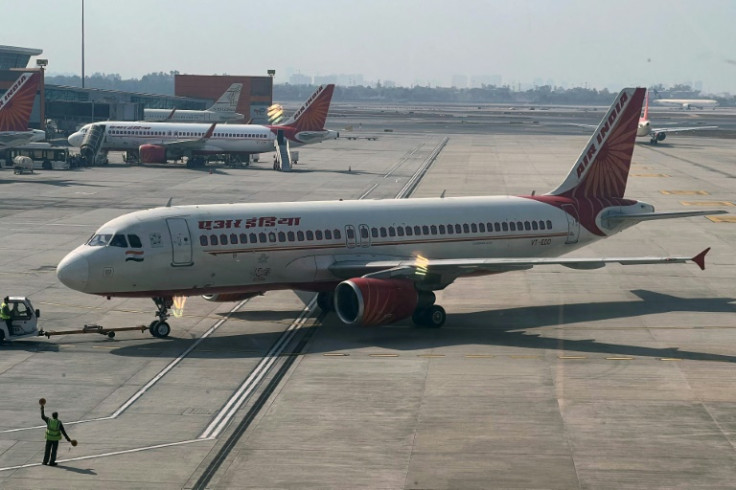Air India Unveils Historic Plane Order With Airbus, Boeing

Air India will purchase 470 planes from Airbus and Boeing under an historic pair of mega agreements announced Tuesday, transforming the former national carrier as it prepares for torrid growth.
The airline, which is owned by the Tata Group, announced a contract to purchase 250 Airbus planes at an AeroIndia salon in Bangalore at a ceremony attended virtually by French President Emmanuel Macron and Indian Prime Minister Narendra Modi.
That was followed by a White House announcement that Air India also agreed to a firm order of 220 Boeing aircraft in a contract that US President Joe Biden touted as a sign of American manufacturing might.
Combined, the two deals constitute the largest unveiled at the same time by a commercial carrier, overtaking a 2011 announcement by American Airlines to purchase 460 planes.
"We are going through a massive transformation," Air India chairman N. Chandrasekaran said at the ceremony in India.
"One of the most important things is a modern fleet which can perform for all routes.
Modi has described strengthening civil aviation as an important aspect of national infrastructure, citing estimates that India will need more than 2,000 aircraft in the next 15 years.
Under the deal with Airbus, Air India signed a letter of intent to buy 210 narrow-body A320neo jets and 40 long-haul A350 aircraft -- with an unspecified number of options for more -- as it plots to capture domestic market share and turn Indian airports into global travel hubs.
"Today is a historic moment for India, for Air India and for Airbus," said Airbus chief executive Guillaume Faury, saying the size of the order "demonstrates the appetite for growth in the Indian aviation industry".
The European aircraft manufacturer already has an engineering centre in the country and sources some components from Indian suppliers.
Macron said the deal highlighted the bond between Paris and New Delhi.
"I want to tell everybody that for me, this very important contract and this achievement today is one of the milestones of the in-depth strategic and friendly partnership we have between India and France," he said.
The carrier's agreement with Boeing includes a firm order of 190 narrow-body 737 MAX aircraft, along with 20 Boeing 787s and 10 Boeing 777X. The deal also has an option for an additional 50 MAX planes and 20 787s, the White House official said.
The White House noted the contract in the context of a US-India initiative on critical and emerging technology unveiled between Biden and Modi in May 2022 and expanded last month.
"This purchase will support over one million American jobs across 44 states, and many will not require a four-year college degree," Biden said, adding that the announcement shows that "the United States can and will lead the world in manufacturing."
Stan Deal, head of Boeing's commercial airplane division, said the contract showed Air India's "confidence in our products and services in the world's fastest growing aviation market," according to a statement.
"With the industry-leading fuel efficiency of the 737 MAX, 787 Dreamliner and 777X, Air India is well positioned to achieve its expansion plans and become a world-class global airline with an Indian heart."
The airline's first new aircraft purchase since 2006 is part of an ambitious plan to return to profitability in the world's third-biggest air transport market.
Air India was founded by tea-to-steel conglomerate Tata Group in 1932 and the Indian government bought a majority stake after independence.
But by the end of the century, the venture was struggling to compete with Gulf carriers and no-frills airlines, starved of investment and racking up billions of dollars in losses that dragged on the public purse.
Tata -- also chaired by Chandrasekaran -- finally bought it back in a $2.4 billion deal a year ago.
Air India remains the country's largest international carrier, but its domestic market share stood at only 8.6 percent in September.
It is aiming to take a 30 percent domestic share by the end of 2027 while expanding its fleet to cover more international routes.
Tata Group is well-positioned to capitalize on the burgeoning market despite the conglomerate's six-decade absence from the air travel industry, aviation consultant Mark Martin told AFP.
"They will have to recruit talent and return to the warm Indian hospitality that made it one of the top five airlines in the world in the 1960s and 1970s," he said.


© Copyright AFP 2024. All rights reserved.




















